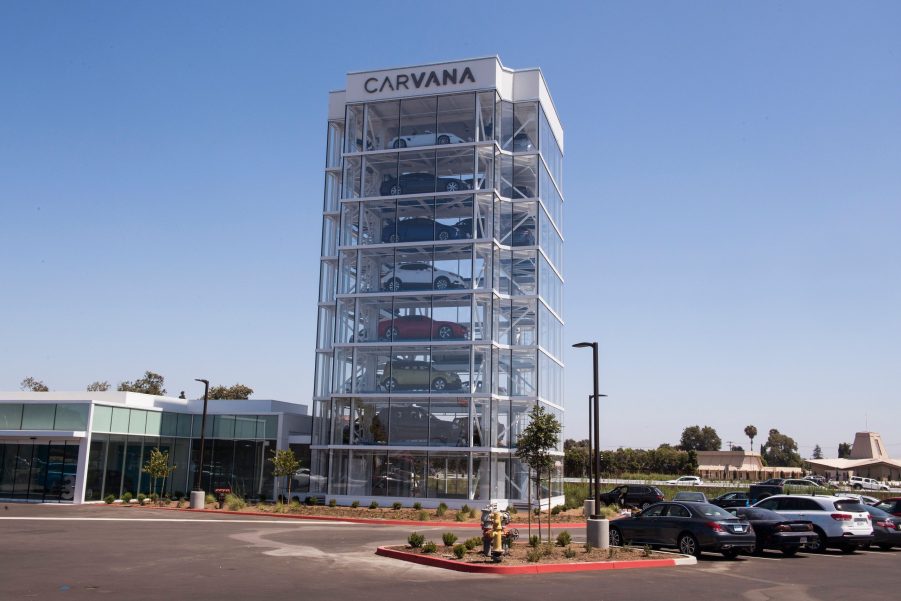
Carvana or CarMax: Which Online Car Sales Site Offers a Better Warranty?
Even if you pay for a pre-purchase inspection from a reputable mechanic, it’s always risky to buy a used car. Some issues don’t show up in the initial inspection, while others may crop up later. Sure, that alternator works just fine today, but in six months or a year, that may not be the case. And since most used cars are sold as-is, you don’t have the benefit of a new car’s warranty to fall back on when things start to break.
But just because most used cars don’t come with a warranty doesn’t mean it’s impossible to get one. There are a number of companies that sell third-party warranties for used cars, although they’re often expensive and don’t always cover what needs to be fixed. For a better experience, a lot of shoppers instead turn to large national used car dealers such as CarMax and Carvana.
So if you’re in the market for a used car, is CarMax still the place to go for a good warranty, or should you take a chance on the newcomer, Carvana?
The CarMax warranty
Thanks to years of TV commercials, most Americans are familiar with CarMax. Because it’s been in business since the early 1990s, CarMax has locations all across the country, which means you probably won’t have to drive far to find one. CarMax is also known for making the buying process as simple and hassle-free as possible, as well as having friendly, helpful employees.
Yes, the no-haggle prices may be a little higher than you’d find at another dealer. But CarMax still remains popular with people who prefer to avoid the shady tactics that other dealers are known to employ. Having had some bad experiences buying used cars in the past, we think CarMax is onto something here.
As for CarMax’s warranty, all cars come with a seven-day money-back guarantee, as well as a 90-day or 4,000-mile limited warranty. Customers who want even more protection can also add MaxCare, which is CarMax’s longer warranty.
MaxCare offers comprehensive coverage that’s similar to the bumper-to-bumper warranty automakers offer on their new cars. Replacements for a punctured tire or worn-out windshield wiper blades aren’t included, but MaxCare does cover more expensive parts such as the engine, transmission, suspension, and climate control. You also get emergency roadside assistance and rental reimbursement, as well as a few other perks. Pricing, however, varies based on the car you buy and your deductible, so you’ll want to confirm a final amount before signing up.
The Carvana warranty
Carvana hasn’t been around nearly as long as CarMax has, but its giant car vending machines have certainly left an impression. Most customers don’t use the vending machines, instead preferring to have their car delivered to their house or apartment. For additional convenience, everything about the buying process is done online, and cars come with a seven-day return policy that limits the downside of buying a car you haven’t taken a test drive yet. That car also includes a 100-day limited warranty.
In addition to the return policy, Carvana also sells gap insurance, which, in the event your car is stolen or totaled, pays the difference between what you owe and what your car is worth. Your car insurance probably offers something similar, but without it, you could end up carless while still owing thousands on a vehicle you can’t drive.
CarvanaCare, on the other hand, is an optional plan similar to CarMax’s MaxCare. And like the warranty that came with the car when it was new, it covers repairs that can easily be hundreds, if not thousands of dollars. Also similar to MaxCare, CarvanaCare’s pricing depends on the car and how low you want your deductible to be.
Which warranty is better?
This one’s incredibly difficult to call. Both CarMax and Carvana include similar standard warranties even though Carvana’s is a little longer. And while MaxCare and CarvanaCare offer similar coverage, the fact that there’s no standard price at either dealer means customers will have to confirm how much each warranty will cost before deciding which is the better choice. That said, it’s probably better to have either warranty than to find yourself stuck with unexpected repair bills.


